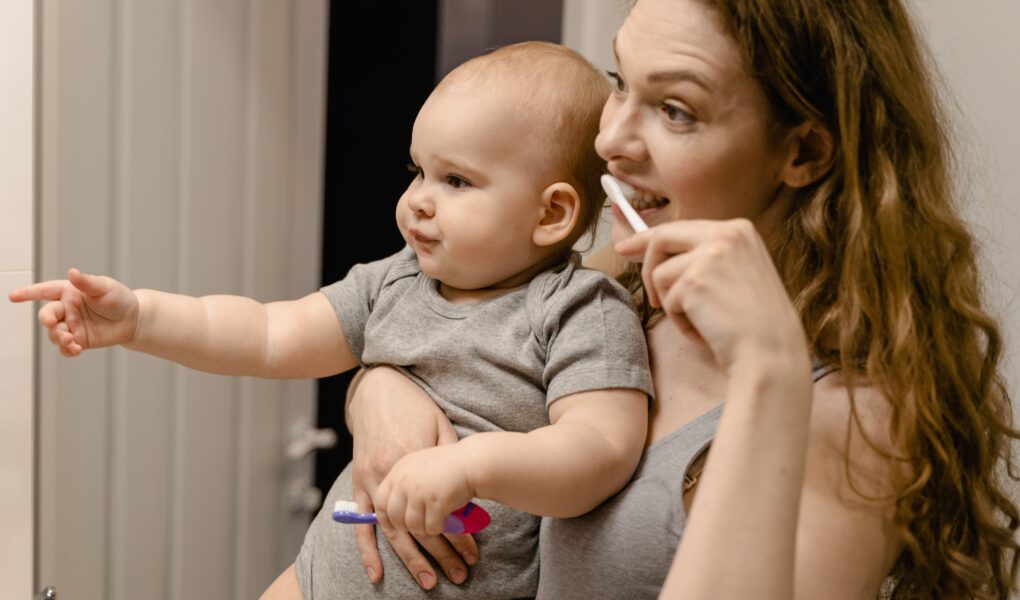Introduction
Caring for your baby’s oral health is essential from the very beginning to lay the foundation for a lifetime of healthy teeth and gums. As a new parent, you may have questions and concerns about baby oral care and how to prevent cavities effectively. In this blog post, we will address common questions and concerns related to baby oral care and cavity prevention, as commonly seen on platforms like Quora, Reddit, and industry forums. From establishing a proper oral hygiene routine to introducing dentist visits, we will provide informative and engaging answers to help you ensure your baby’s bright smile and oral well-being.
1. When Should I Start Baby Oral Care?
Baby oral care should begin even before your baby’s first tooth emerges. You can start by gently wiping your baby’s gums with a clean, soft cloth or gauze after feeding. Once the first tooth appears, usually around 6 months, transition to a soft infant toothbrush and water for gentle brushing.

2. How Often Should I Brush My Baby’s Teeth?
Brush your baby’s teeth twice a day, ideally after breakfast and before bedtime. Use a tiny smear of fluoride toothpaste, no larger than a grain of rice, for babies under 3 years old. For children aged 3 to 6 years, use a pea-sized amount of fluoride toothpaste.
3. Are Baby Toothpastes Safe?
Yes, baby toothpastes formulated with fluoride are safe and effective for preventing cavities when used in the right amount. Look for toothpaste brands specifically designed for infants and young children, as they contain the appropriate fluoride concentration.
4. Can I Use Fluoride-Free Toothpaste for My Baby?
Fluoride is beneficial in preventing cavities, but if you prefer to use fluoride-free toothpaste for your baby, it’s still essential to establish a regular oral hygiene routine. Cleaning your baby’s teeth and gums with water and a soft infant toothbrush is better than no oral care at all.
5. When Should I Schedule My Baby’s First Dental Visit?
The American Academy of Pediatric Dentistry recommends scheduling your baby’s first dental visit around their first birthday or within six months of their first tooth eruption. Early dental check-ups can identify potential issues and provide guidance on proper oral care.
6. Can Bottle-Feeding Cause Cavities in Babies?
Prolonged bottle-feeding, especially with sugary liquids like milk, formula, or juice, can contribute to “baby bottle tooth decay.” To prevent this, avoid putting your baby to bed with a bottle and gradually transition to using a sippy cup around 6 months of age.
7. Are Pacifiers Harmful to My Baby’s Teeth?
Pacifiers are generally safe for infants, but prolonged use beyond age 2 can affect the alignment of your baby’s teeth. If your child uses a pacifier, consider gradually weaning them off by age 2 to minimize the risk of dental issues.
8. How Can I Encourage Healthy Eating Habits for Oral Health?
Promote a balanced diet rich in fruits, vegetables, and whole grains while limiting sugary snacks and beverages. Offer water between meals to rinse the mouth and reduce the risk of cavities.
9. Is Thumb-Sucking a Concern for Oral Health?
Thumb-sucking is a natural reflex for infants, but prolonged thumb-sucking beyond age 3 can affect dental development. If your child continues thumb-sucking, discuss strategies with a pediatric dentist to address this habit.
10. What Are Dental Sealants, and Do They Help Prevent Cavities?
Dental sealants are protective coatings applied to the chewing surfaces of molars to prevent cavities. They are an effective preventive measure and can be recommended by your child’s dentist after the eruption of permanent molars.
Conclusion
Baby oral care and cavity prevention are essential components of your child’s overall health and well-being. By establishing a proper oral hygiene routine from an early age, scheduling regular dental check-ups, and promoting healthy eating habits, you can set the stage for a lifetime of healthy smiles and strong teeth for your little one.
Note: This blog post is for informational purposes only and does not constitute medical advice. Always consult with a pediatric dentist or healthcare professional for personalized guidance on your baby’s oral health.




